
The Elevate Journal
- Leadership
- Nonprofit Support
- Accessibility
- Community Engagement
- Equity
- Data Collection
- Learning
- Internal Culture
- Collective Impact
- Storytelling
- Compassion
- Operations
- Project Spotlight
- Systems Change
- Facilitation
- Impact
- Evaluation
- YPAR
- Fundraising
- Focus Groups
- Data
- Reflection
- Reporting
- Surveys
- Services
- Collaboration
- Strategy
- Resources
- Stakeholders

Project Spotlight: New Equitable Hiring Initiative in Delaware
The Delaware Equitable Hiring Initiative is designed to connect local businesses with historically overlooked talent in Wilmington, Delaware, ultimately uplifting communities with quality job opportunities. Funded by JPMorganChase (JPMC) and Capital One and headed up by the Responsible Business Initiative for Justice (RBIJ), the project hones in on three Delaware zipcodes to train businesses in equitable hiring practices and recruit untapped talent.
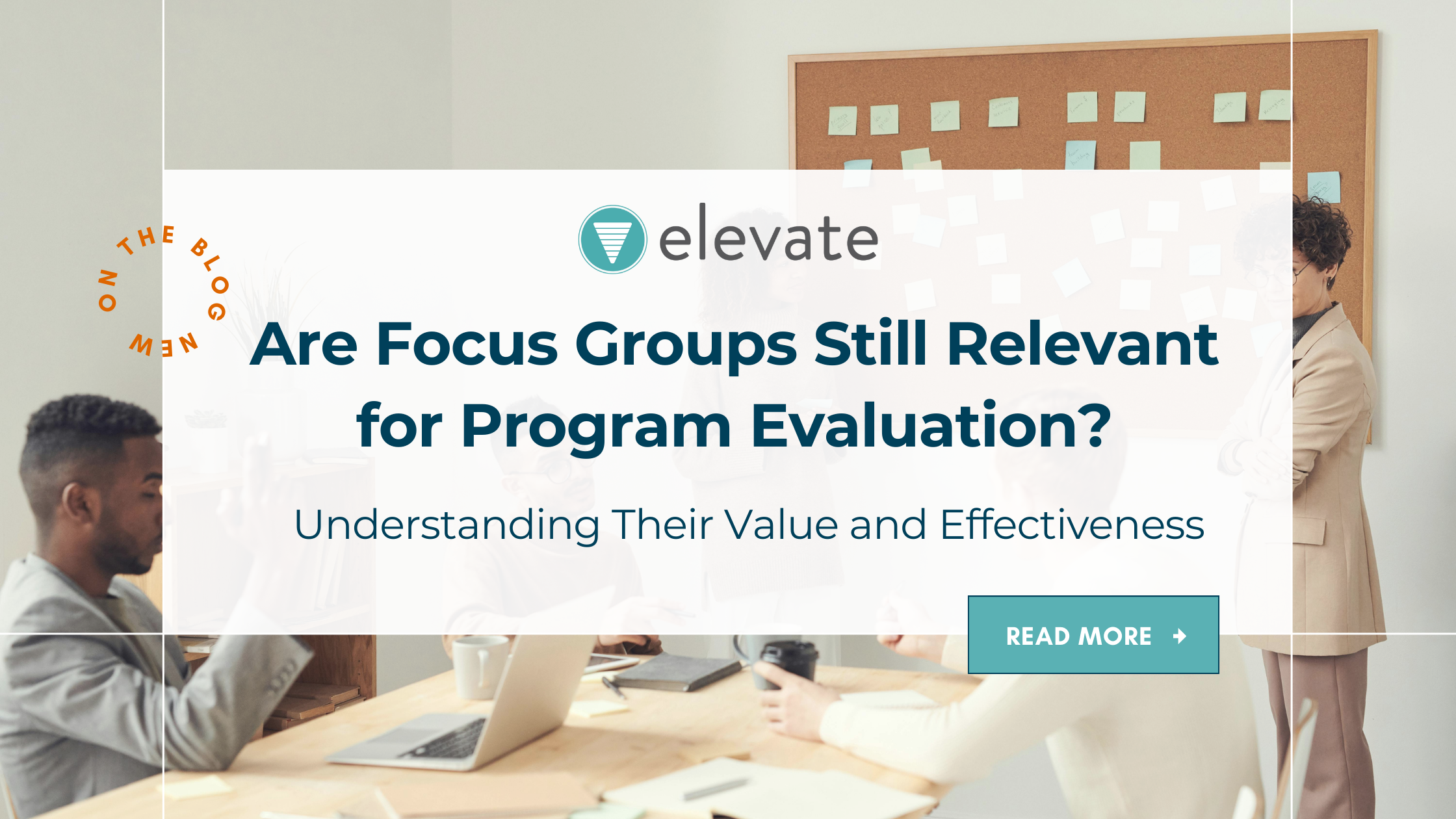
Are Focus Groups Still Relevant in Program Evaluation? Understanding Their Value and Effectiveness
In the ever-evolving landscape of program evaluation, focus groups have long been a staple for gathering qualitative insights. As we navigate a world filled with digital distractions and shifting preferences, the question arises: Are focus groups still an effective tool for program evaluation? Let’s explore what focus groups are, when they should be used in program evaluation, and their current effectiveness.
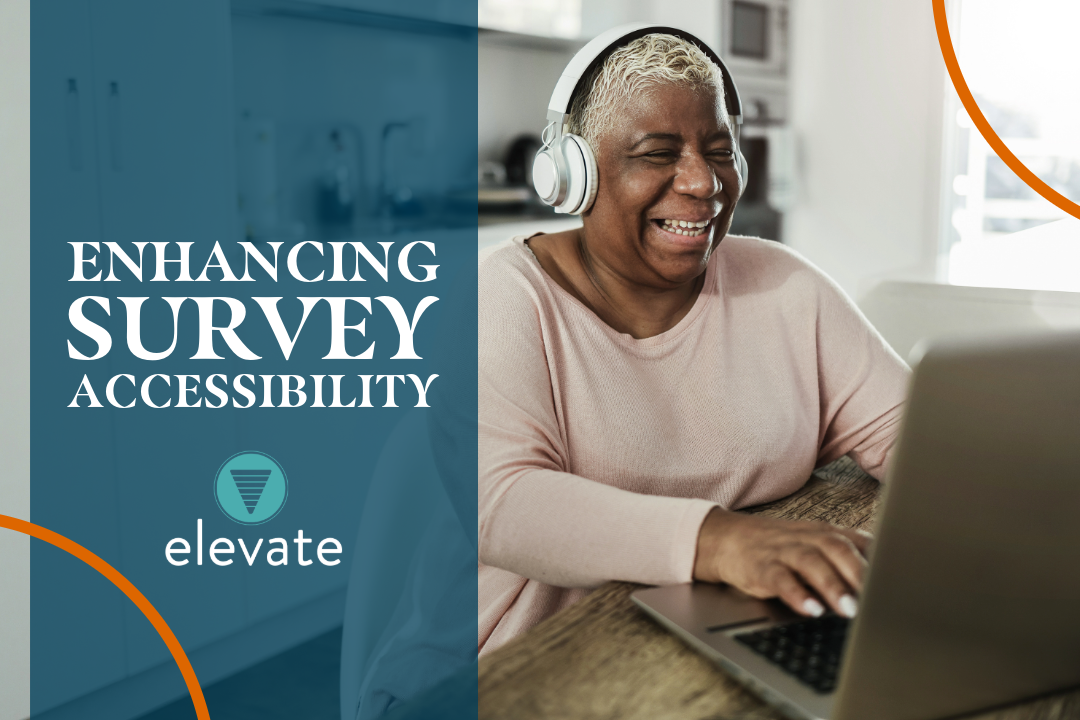
Enhancing Survey Accessibility
Several of West End Home Foundation's funded partners serve older adults who are blind or have limited vision. This challenged us and our partners at WEHF to consider ways to make our online survey more accessible to these individuals. We haven’t arrived at a perfect solution yet, but here are some strategies we’ve learned about that can make online survey data collection more approachable for individuals who are blind.
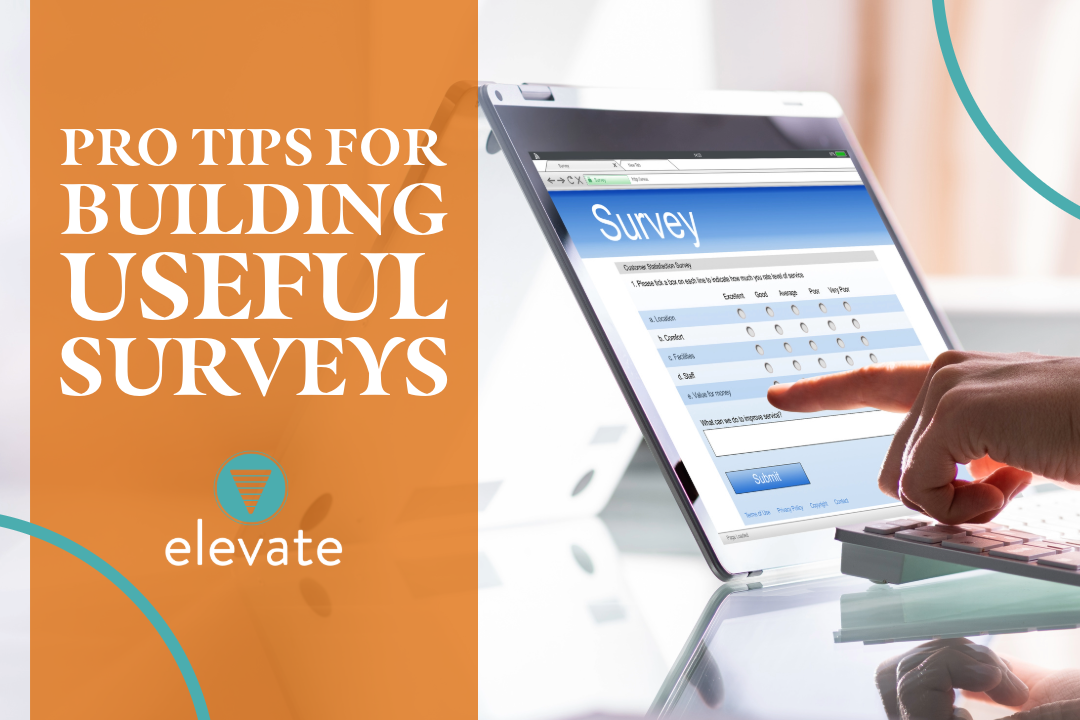
Elevate Pro Tips for Building Useful Surveys
Surveys are one of the most common data collection tools we encounter at Elevate, and for good reason! Surveys can be a helpful and relatively inexpensive way to gather quantitative (and sometimes qualitative) data from respondents about their attributes, perceptions, knowledge, attitudes, and behaviors. Surveys, when poorly designed, can also generate data that is not useful or usable. Here are some of our recommendations for designing quality surveys.
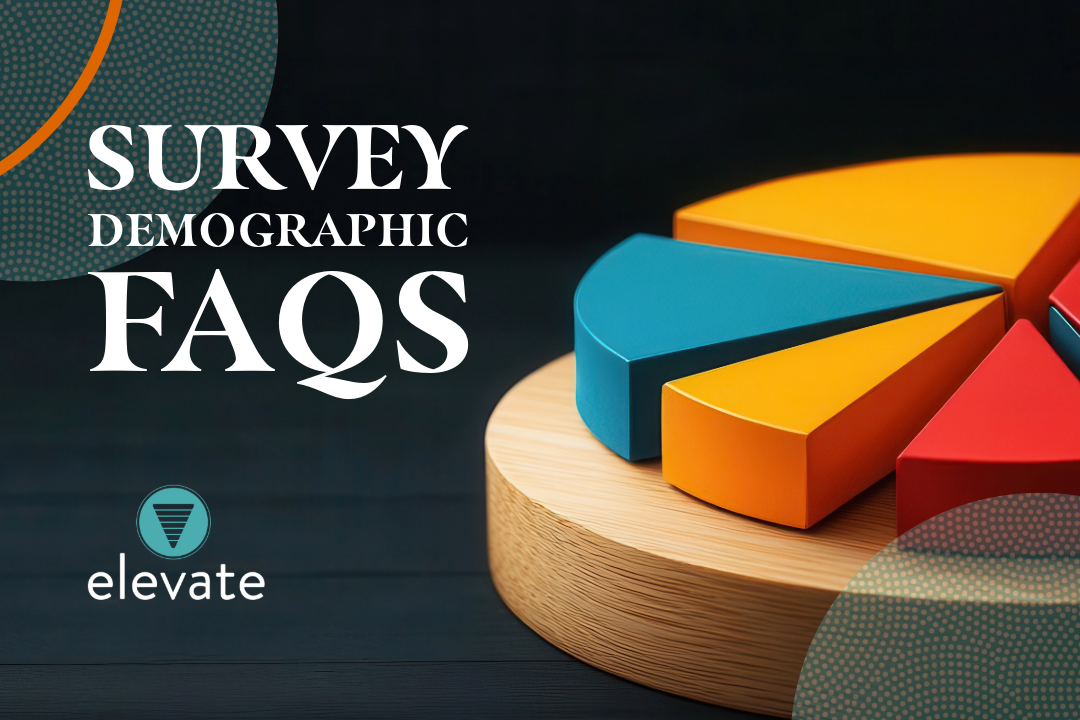
Survey Demographic FAQs
When designing survey tools with our clients, we often receive many questions surrounding the demographic portion of the questionnaire. Demographic questions can be tricky for a number of reasons, and there is no real consensus around best practices. In this post, we will share Elevate’s answers to some demographic FAQs that are backed by literature and our own experience in consulting.
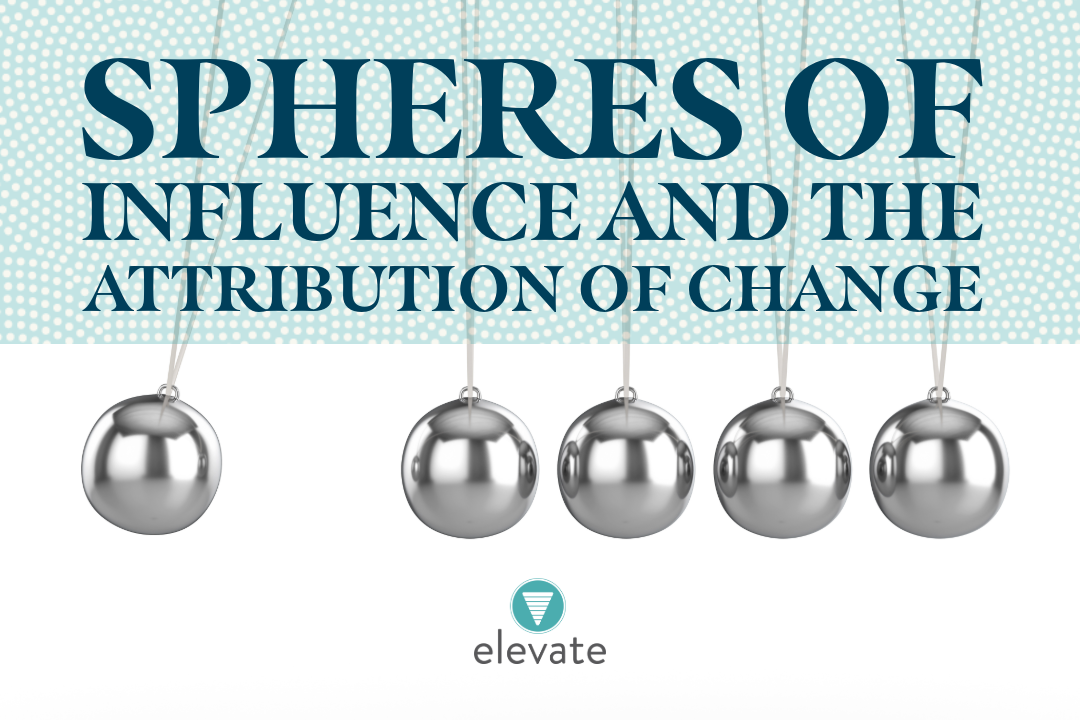
Spheres of Influence and the Attribution of Change
A lot of our initial conversations with clients start with some version of the following: “We really don’t know how to prove that we do x. We know that we see that change day to day, but we don’t have the data to prove that we caused that change.” The key word in this request, of course, is “caused.” Often, organizations feel pressured to demonstrate that their intervention was the sole cause of an observed change. Even when funders or stakeholders aren’t requesting that directly, it’s often assumed that “proving” that your intervention caused an observed change is still the “holy grail” of evaluation.
